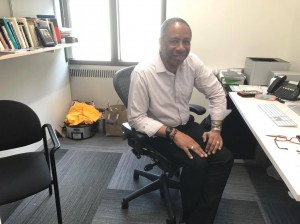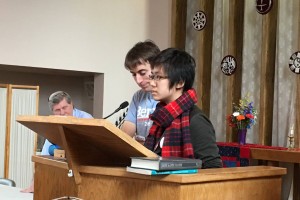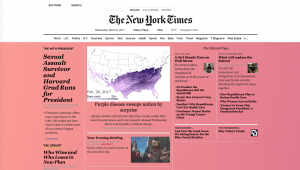This Wednesday I interviewed Ceasar McDowell, a professor within MIT’s Urban Studies department. He has done a profound amount of work over the years on issues like rent control and working to create community awareness on gentrification, in areas such as Central and Roxbury Crossing. He spoke that a central issue with gentrification was that it can creep in without people realizing it: developer’s projects are often reviewed on a one-by-one basis, and it can be hard for communities to be aware of the holistic effects of these development projects in terms of transforming the socioeconomic landscape of existing communities. His work relates to giving communities a channel to communicate with each other and be aware of the overall impact of development projects in a way that allows them to make decisions that will protect their community members.
He views the biggest challenge associated with addressing gentrification and displacement in Boston is increasing civic engagement of people who are most affected by these issues. He spoke about how organizations surrounding these issues often are not diversely represented by people who are most affected – and works towards spreading the engagement and education process to these communities by incorporating information in a way that would allow them to encounter them in a day-to-day setting: at banks, libraries, public transportation, etc.
One thing that we also talked about was the role of MIT in gentrifying the Cambridge area. He notes that although MIT is an academic institution and often is thought of as benevolent, its role and motives in terms of occupying space in Cambridge is also that of any other real estate developer. As someone who represents MIT, he and other professors in his department feel it’s necessary to take action and be involved in the conversation surrounding MIT’s impact on gentrification, mentioning he and other professors are involved in spaces such as the Cambridge Citizens Alliance.
Link to interview: https://www.dropbox.com/s/j800bt2law0ynvb/mcdowell.m4a?dl=0


